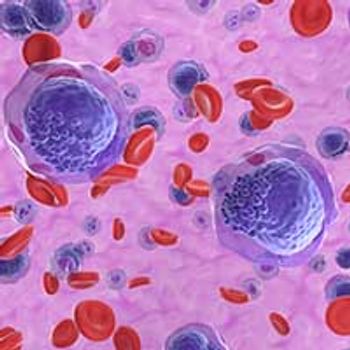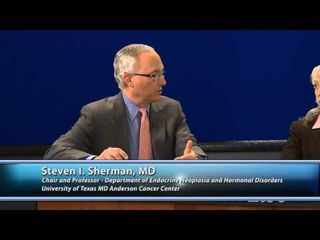
Precision Medicine in Oncology®
Latest News
Video Series

Latest Videos
CME Content
More News

Vikram M. Narayan, MD, highlights takeaways from 5-year follow-up data examining the gene therapy nadofaragene firadenovec and details promising emerging therapies for bladder cancer.

Guardant360 CDx received In Vitro Diagnostic Regulation certification for tumor mutation profiling in solid tumors and for companion diagnostic indications in NSCLC and breast cancer.

Radiation therapy is a critical component of cancer care that is currently being used in approximately 50% of all patients with cancer.

In case you missed any, below is a recap of every episode of OncLive On Air that aired in April 2024.

The T-cell engager CX-904 had a favorable safety profile when administered as monotherapy in patients with advanced or metastatic solid tumors.

D. Ross Camidge, MD, PhD, of University of Colorado Health Lung Cancer Clinic – Anschutz Medical Campus, discusses clinical efficacy with agents targeted for NRG1-fusion–positive non–small cell lung cancer.

Treatment with acalabrutinib-based regimens led to long-term benefits in patients with higher-risk CLL, across all lines of therapy.

D. Ross Camidge, MD, PhD, of University of Colorado Health Lung Cancer Clinic – Anschutz Medical Campus, discusses ongoing research for patients with non–small cell lung cancer who harbor NRG1 fusions.

D. Ross Camidge, MD, PhD, of University of Colorado Health Lung Cancer Clinic – Anschutz Medical Campus, discusses standard treatments for patients with non–small cell lung cancer who harbor NRG1 fusions.

Glecirasib elicited responses and demonstrated a manageable safety profile in patients with pretreated advanced NSCLC harboring KRAS G12C mutations.

Manmeet Singh Ahluwalia, MD, MBA, FASCO, discusses how advancements in precision medicine have improved outcomes for patients with brain metastases.

D. Ross Camidge, MD, PhD, of University of Colorado Health Lung Cancer Clinic – Anschutz Medical Campus, discusses differences between DNA and RNA fusions for detecting NRG1 fusions.

D. Ross Camidge, MD, PhD, of University of Colorado Health Lung Cancer Clinic – Anschutz Medical Campus, discusses the prevalence of NRG1 fusions in lung cancer.

Rohan Garje, MD, highlights advances made in precision medicine approaches for the management of metastatic prostate cancer.

Heinz-Josef Lenz, MD, FACP, discusses the prognostic and predictive value of HER2 expression levels in select patients with colorectal cancer.

Arianna Gianakos, DO, discusses the innovation in orthobiologics and trailblazing paths in equity and advocacy.

The FDA has approved alectinib as adjuvant treatment in select patients with ALK-positive non–small cell lung cancer.

Sangeeta Goswami, MD, PhD, discusses her career focused in genitourinary cancers, with a focus on patient-centric science and shares mentorship stories along the way.

In case you missed it, these were the key regulatory decisions made by the FDA in March 2024.


Adagrasib plus cetuximab elicited a 34% objective response rate in patients with previously treated KRAS G12C-mutant advanced colorectal cancer.

Andrew Ip, MD, discusses the implications of using next-generation sequencing alongside machine learning in the diagnosis of hematologic malignancies.

Phase 2 data from the AUGMENT-101 study show that revumenib elicits responses with acceptable safety in pediatric patients with KMT2A+ acute leukemia.

As genomic testing becomes ubiquitous in cancer care, some patients experience out-of-pocket costs that may affect oncologists’ genetic testing decisions.

A survey of practicing oncologists in the United States revealed that clinicians have ethical concerns surrounding the use of AI in cancer care.






















































